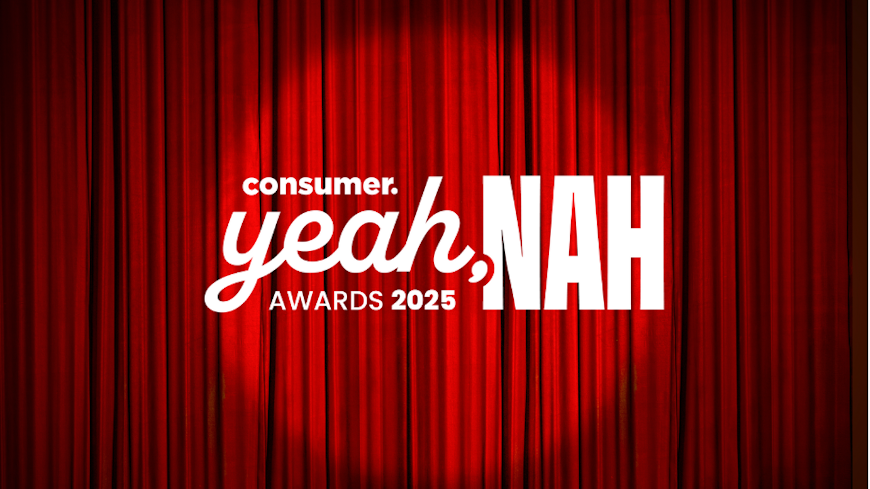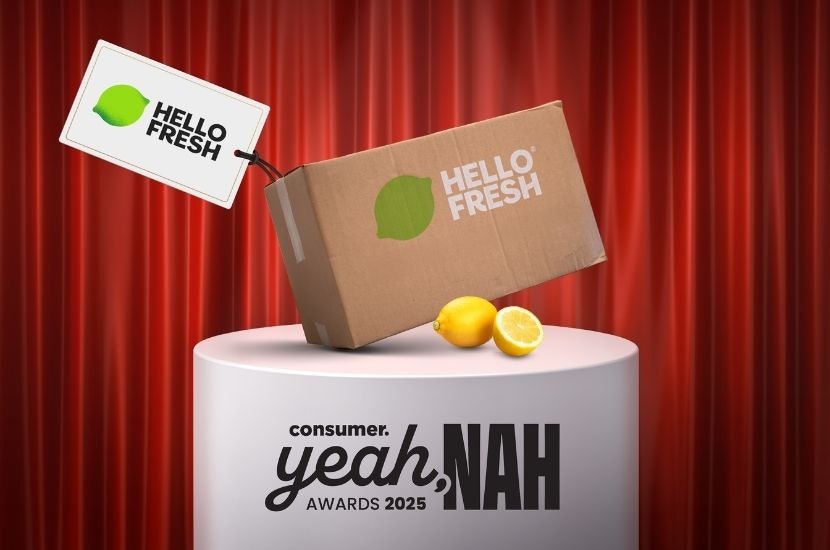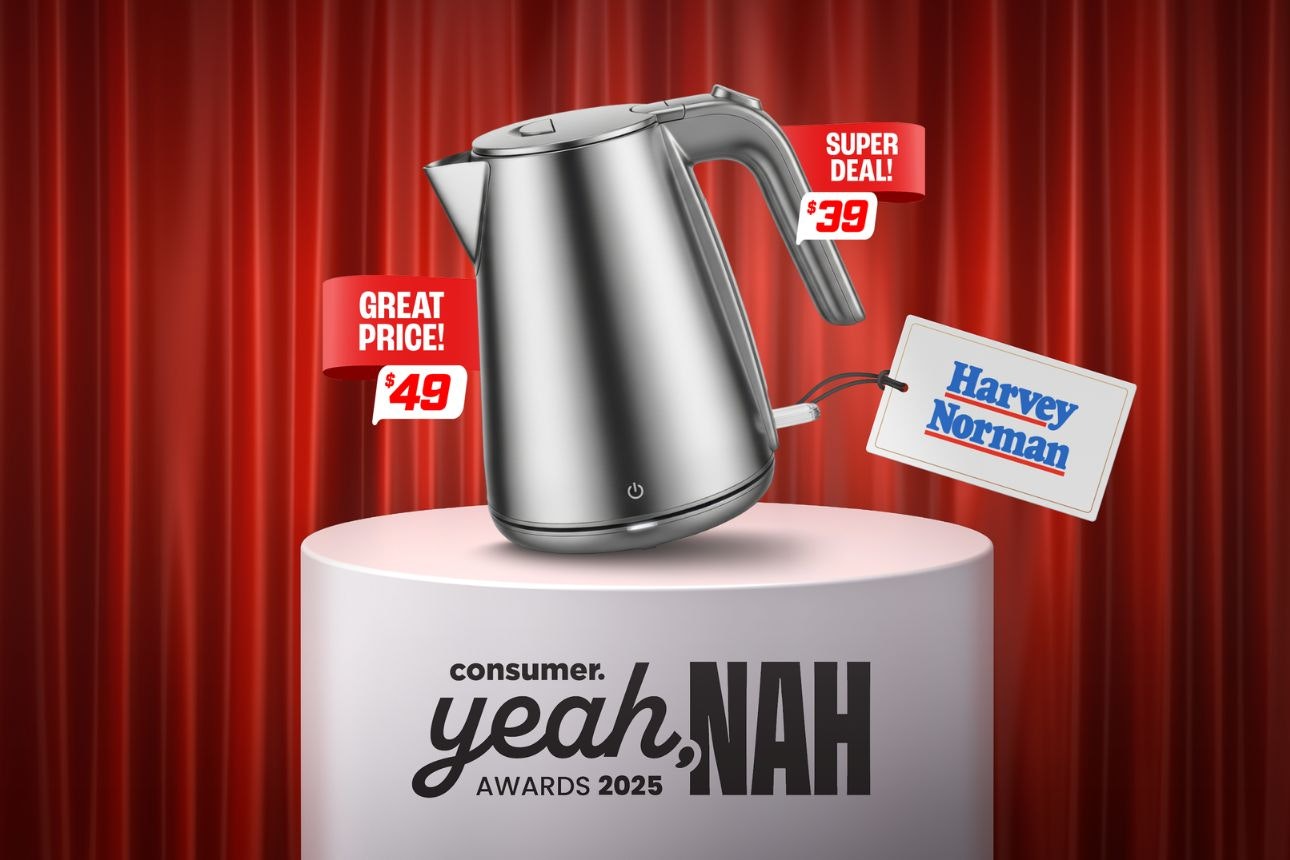Plus, Barkers menswear makes five dubious claims in its online returns policy that risk misleading consumers about their rights.
From sneaky sales tactics to products that simply don’t do what they should - Consumer's 2025 Yeah, Nah Awards shine a light on four companies that have disappointed and bewildered the experts this year.

Jon Duffy, Consumer NZ chief executive says the awards exist for an important reason – accountability.
“We’re constantly hearing from New Zealanders who’ve been caught out by confusing messaging, poor performing products or baffling fine print,” says Duffy.
“Those issues might seem small or inconsequential when you’re on the receiving end, but from where we sit, we’re hearing the same issues over and over again. The Yeah, Nahs are an opportunity to highlight the consumer issues that creep up on us over time – whether it’s confusing messaging or products that aren’t up to the job they were designed for.
"Big or small, it doesn’t matter - if we don’t name and shame them, who will?”
2025 Yeah, Nah Award ‘winners’
🩹 You Had One Job Award - Pams Plastic Plasters
For sticky plasters that don’t really stick
A member tip-off and Consumer testing confirmed this brand of plasters don’t hold on for long.
“Alongside Pams, we trialled two basic plastic plasters from Elastoplast and Band-Aid. Each volunteer chose a place on their body, like their arm or leg, and stuck all three plasters there. Pams plasters just couldn’t hold on,” says Duffy.
We asked Foodstuffs, which owns the Pams brand, for a response. It said it had reviewed customer feedback on Pams plasters and found no consistent issues with adhesion.
“Our volunteers begged to differ. If your one job is to stick, you should definitely stick,” says Duffy.
🔒 Unsubscribe: Impossible Award – HelloFresh
For a subscription that’s a mission to escape
When Consumer's research team looked into subscription traps as part of a research report into deceptive online design practices in New Zealand, meal-box delivery service HelloFresh took the cake for making it a mission to unsubscribe.
“The fact that it took four separate confirmations of cancellation before the cancellation was actioned didn’t help – it's a bit like being stuck in an escape room,” says Duffy.
Research respondents felt that HelloFresh was doing everything it could to stop them from cancelling, with someone even comparing the experience to a bad relationship break-up.
“Signing up to the service is so easy. But cancelling is significantly harder, which makes HelloFresh’s online design all the more frustrating.
“No-one should need to ‘Tom Cruise’ their way out of a meal-box service,“ says Duffy.
In October, HelloFresh told Consumer it had introduced a “new and improved” pause and cancellation process.
“We took a look, and yeah, nah, there’s no major improvement.”
🤑 No, Harvey Norman, No Award – Harvey Norman
For promoting specials that aren't really special
Following a review of pricing at some of New Zealand’s big box retailers, Consumer was bewildered by Harvey Norman’s constant promotional pricing labels.
Consumer tracked 10 products online over a 9-week period and found that Harvey Norman promised a “great price”, “super deal”, “huge deal” or a “massive stock sellout” every week on most of the 10.
"If a business constantly sells a product at a special price, that ‘special’ becomes the usual selling price. A sale must be a genuine opportunity to save, for a limited time,” explains Duffy.
“When something says it’s on sale – you need to be able to trust it really is. Harvey Norman makes that surprisingly difficult to do.”
When Consumer asked a Harvey Norman spokesperson about its pricing practices, the spokesperson said the company’s practices are consistent with the “industry approach to pricing and labelling decisions.”
“If that’s the case, we’re giving the ‘industry approach’ a ‘yeah, nah’, too,” Duffy declares.
📝 On Bad Terms Award – Barkers menswear
For potentially misleading consumers about their consumer rights
Consumer’s review of 30 online returns policies found Barkers menswear made the most questionable claims about consumers’ rights – including implying some items can’t be returned.
“Our spot check found that Barkers online returns policy wasn’t up to scratch. You have the right to return any product that doesn’t meet the guarantees under the Consumer Guarantees Act. It’s that simple,” says Duffy.
“A returns policy can’t overrule the law, and we think Barkers risked misleading their customers by setting out a range of limitations that are at odds with the customer’s rights under the Consumer Guarantees Act.”
Under the Fair Trading Act, it’s illegal for retailers to mislead you about your consumer rights.
The good that comes out of a grumble
The awards aren’t only about pointing fingers, says Duffy.
“Last year's awards led to some positive outcomes. Westpac pledged to make improvements after collecting the Grave Disappointment Award when its life insurance product received the lowest customer satisfaction score across Consumer’s survey results.
“And an unhappy Bosch customer even used Bosch’s Yeah, Nah Award from last year to help him win a Disputes Tribunal case!
After being questioned by Consumer about its pricing approach, Harvey Norman has attempted to improve some of its promotional labelling, too
Seen something fishy? Tell us.
If a business, product or service has raised your eyebrows – tip us off. Your complaint could be a contender in next year’s awards and may even be the push that forces change,” says Duffy.
Official nominations for the 2026 awards open in May.
Comments
Was this page helpful?
Related articles

Yeah, Nah Awards: the HelloFresh subscription trap

Yeah, Nah Awards: Pams sticky plasters that don’t really stick

Yeah, Nah Awards: Looks like it's on special every week at Harvey Norman
